Gallery
Photos from events, contest for the best costume, videos from master classes.
 | 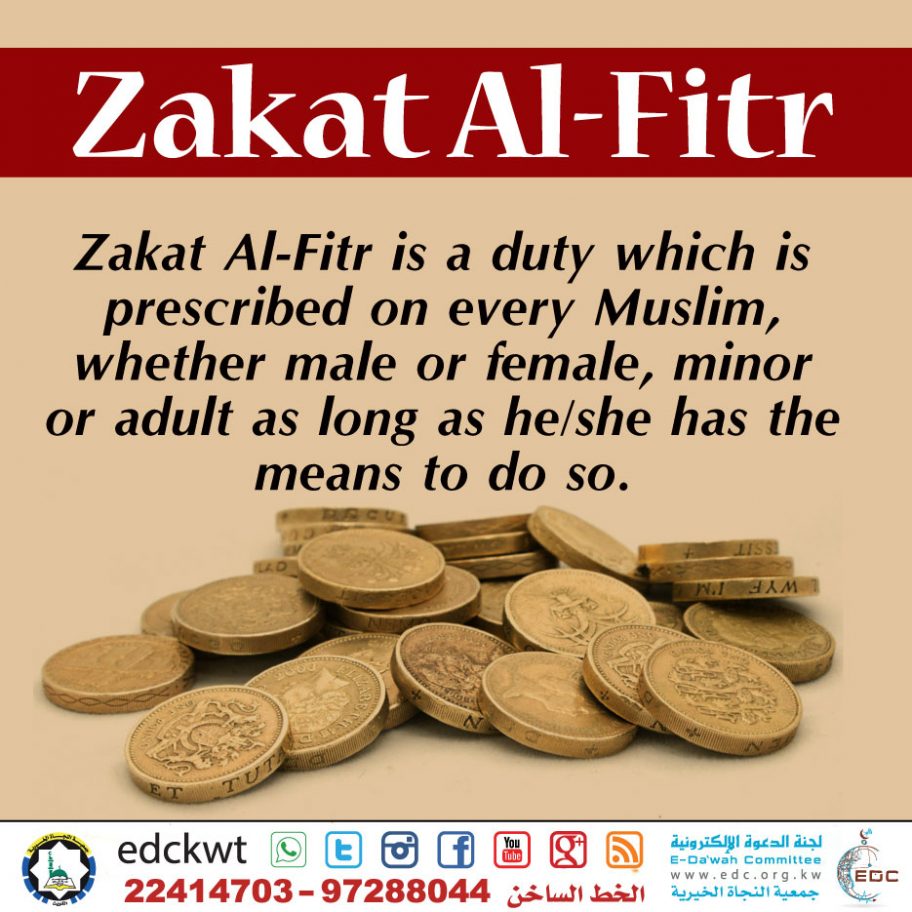 |
 | 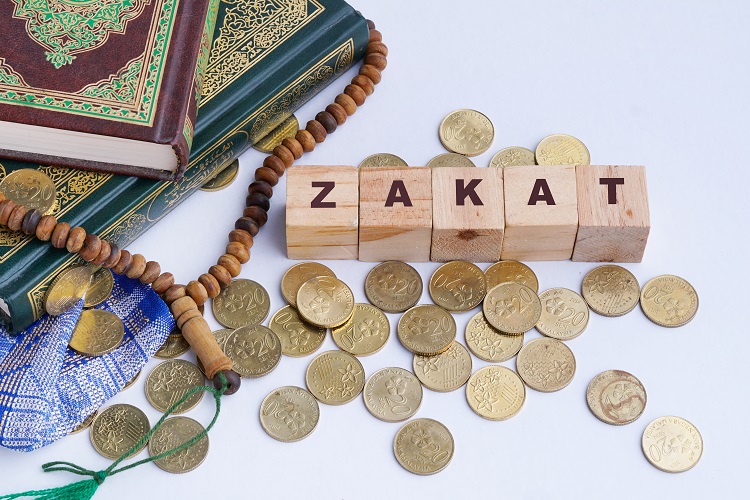 |
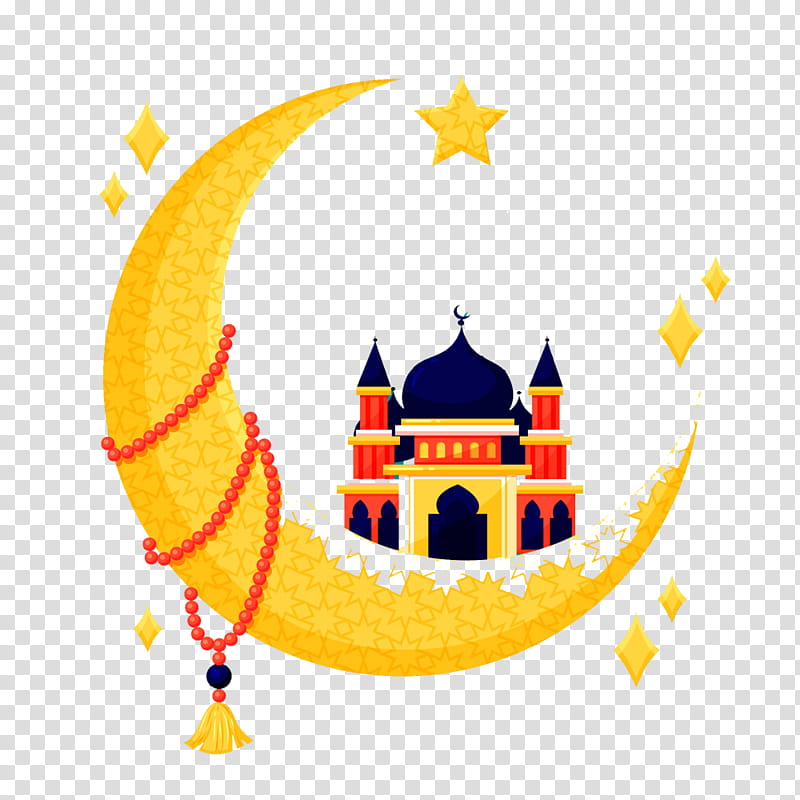 |  |
 | 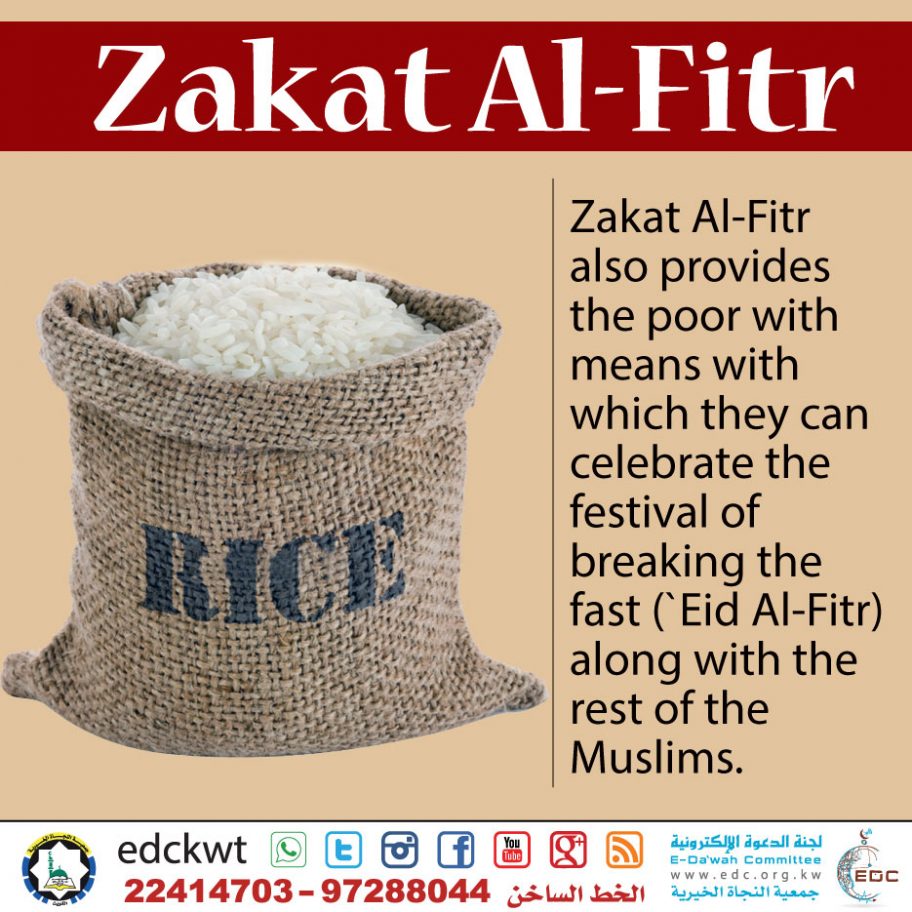 |
 |  |
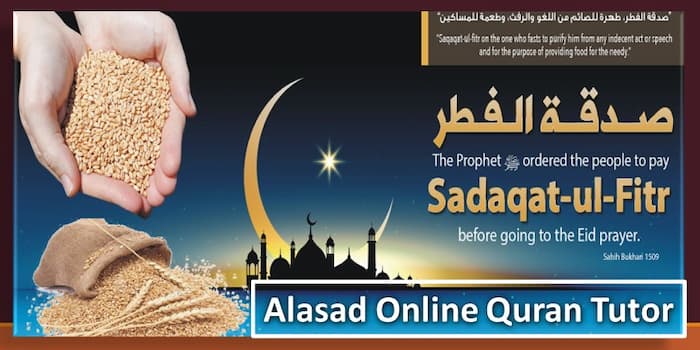 |  |
Zakat al-fitr, sometimes called Zakat ul-fitr or the Zakat of Breaking the Fast of Ramadan, is a charitable donation (sadaqah) or alms paid in food. In more modern times, you can also give it as money paid towards a masjid or Islamic organization that distributes food and essentials to the poor. Zakat al-Fitr, or the Zakat of Breaking the Fast of Ramadan, is the special obligatory alms paid by all Muslims at the end of the Ramadan fasting month. It is also called Sadaqat al-Fitr , “the Charity of Breaking the Fast” of Ramadan, and Zakat al-Fitrah , the Alms of Human Nature, or the Human Creation, because it is a mandatory charity Zakat al-Fitr is a kind of charity (sadaqah) that is obligatory at the time of breaking the fast of Ramadan. The word zakah is connected by idaafah (genitive structure in Arabic grammar) to fitr because the occasion of breaking the fast is the reason why this zakah becomes obligatory. Zakat al-Fitr, also known as Fitrana, is a mandatory charity given by self-sufficient adult Muslims before Eid prayer and the end of Ramadan. It differs from other forms of Zakat as it is imposed on individuals rather than wealth. In Islam, Zakat al-Fitr (Zakat of Breaking the Fast of Ramadan), also known as Sadaqat al-Fitr (Charity of Breaking the Fast) or Zakat al-Fitrah (the Alms of Human Nature), [1][unreliable source?] is a form of alms-giving which Islam considers required of every able [verification needed] Muslim at the end of Ramadan. Zakat al Fitr (Zakat ul Fitr) is a unique form of charity prescribed for Muslims after the holy month of Ramadan. Often referred to as “Eid Fitrana,” this charitable act serves as a means of purifying those who fast from any indecent act or speech and to help the poor and needy. Zakat Al Fitr also known as sadaqah fitr often translated as ‘almsgiving of fast-breaking,’ is a special form of charity that is obligatory for every Muslim—male and female, young and old—before the Eid al-Fitr prayer for the expiation of fasting, taraweeh, and Itikaf. Zakat-al-Fitr (Fitrana) is a compulsory act of charity that Muslims must pay at the end of Ramadan. The purpose of this payment is to allow those in poverty to take part in Eid-al-Fitr celebrations. Zakat-al-Fitr is often mistaken for Zakat al-Mal, especially by those new to the Muslim community, but they are two completely different payments. Zakat al-Fitr, often simply called Fitrana, is a form of charity given to the poor at the end of the Islamic holy month of Ramadan. Think of it as a purification tax for the fasting person, cleansing minor transgressions committed during the month. Zakat al-Fitr is the obligatory almsgiving that all eligible Muslims must give to purify their fasting efforts during Ramadan and help deserving Muslims prepare for Eid-ul-Fitr. Furthermore, Zakat al-Fitr is mandatory, and it has several virtues and benefits. You can pay Zakat ul fitr ($10) to any charitable agent online or in-person during Ramadan, who will then disperse the funds and use it to buy food for a person in need before the Eid ul Fitr prayer. As Islamic Relief acts as a charitable agent, we can therefore be given the money to pay for the food beforehand which we will then spend where The Zakat-ul-Fitr amount for this year is $15 per family member. Zakat-ul-Fitr is obligatory and must be paid before Eid Salah. Click the link below to be directed to the Zakat donation page. The Zakat-ul-Fitr amount for this year is $12 per family member. Zakat-ul-Fitr is obligatory and must be paid before Eid Salah. Click the link below to be directed to the ISNS Zakat donation page. Fitrana is also known as Zakat ul Fitr or Sadaqatul Fitr. In English, it is known as ‘the charity of breaking the fast’. Another name for Fitrana is Zakat al-Fitrah, which translates to the charity of human nature, and in the Islamic jurisprudence it is defined as a compulsory charity to be made at the end of Ramadan. Zakat al Fitr (also known as Fitrana) is a charitable donation of food that must be given before Eid prayer, before the end of the month of Ramadan, for the love of Allah. Zakat al Fitr is compulsory upon every self-supporting adult Muslim who has food in excess of their needs, on behalf of themselves and their dependants. Donate Fitrana (Zakat ul Fitr): Fulfill your obligation this Ramadan Ibn `Abbas (may Allah be pleased with him) reported:“ The Messenger of Allah (peace be upon him) ordained Zakat ul Fitr [Fitrana] to purify the fasting person from indecent words or actions, and to provide food for the needy. Donate Fitrana (Zakat ul Fitr): Fulfill your obligation this Ramadan Ibn `Abbas (may Allah be pleased with him) reported:“ The Messenger of Allah (peace be upon him) ordained Zakat ul Fitr [Fitrana] to purify the fasting person from indecent words or actions, and to provide food for the needy. Donate Fitrana (Zakat ul Fitr): Fulfill your obligation this Ramadan Ibn `Abbas (may Allah be pleased with him) reported:“ The Messenger of Allah (peace be upon him) ordained Zakat ul Fitr [Fitrana] to purify the fasting person from indecent words or actions, and to provide food for the needy. What is Zakat-ul-Fitr? Zakat ul Fitr (also known as Fitrana) is a special form of charity given before the Eid prayer/day. Sadaqat al-Fitr translates to “the Charity of Breaking the Fast.” What is the difference between Zakat and Zakat ul Fitr? Zakat is a charity that you give on excess or gains of the year. It is 2.5% of the wealth that Zakat-ul-Fitr is part of the fast of Ramadan and it consists of approximately 5.5 pounds of rice, wheat, dates, or similar food items. It is estimated to be $12 USD per family member or equivalent in most developed countries. It must be given before Eid prayers, unless one has a valid reason for a delay.
Articles and news, personal stories, interviews with experts.
Photos from events, contest for the best costume, videos from master classes.
 |  |
 |  |
 |  |
 |  |
 |  |
 |  |